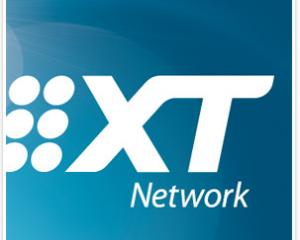"Enough is enough," he thundered at the start of the event, which was also broadcast live in the internet and on a teleconference.
"For too many of our customers, we have not lived up to the promises we made about XT when the network was launched.
"So that's why we are taking action on a broad range of fronts, covering the operation and management of the network and customer offers."
Dr Reynolds was in no mood for forgiveness after fronting up to four XT outages since December 14.
The common factor in all of the outages was the Christchurch radio network centre.
Alcatel-Lucent, the France-based company which installed XT, was put on notice by Dr Reynolds to fix the problem, but Telecom executives were taking a much more hands-on approach on the issue, he said.
Alcatel-Lucent had been a "strategic partner" of Telecom for 10 years but the time had come for a serious review of that relationship.
Alcatel-Lucent was operating the XT technology across the United States, France and Italy.
Why was it not working in New Zealand, Dr Reynolds asked.
There was no hiding from the seriousness of the problem.
One failure was too many.
Several were unacceptable.
"Being sorry is not enough.
"Actions are needed."
Dr Reynolds estimated the outages had cost Telecom $10 million.
In response to questions, he fudged an answer about providing a guarantee there would not be a fifth outage.
Instead, Dr Reynolds guaranteed to work hard to get the problem fixed.
The company's chief transformation officer, Frank Mount, resigned yesterday, and his departure was directly related to the XT failure.
Mr Mount would not receive a compensation package.
Asked if he would consider resigning if the XT problems continued, Dr Reynolds said that as chief executive he was there for the tough times and to lead the company through them.
He did not believe there would be further resignations.
Craigs Investment Partners broker Chris Timms said talkback shows in New Zealand were rife with suggestions that Telecom had underinvested with XT.
"In our view, they have over-invested."
It was often quoted that XT cost $567 million, but that ignored the 2007 capital expenditure.
The true cost was closer to $750 million to deploy a nationwide network of 900 cell sites covering 97% of the population.
Putting that in context, Telstra spent $A1 billion to deploy a nationwide network of 6200 cell sites covering 98% of the Australian population, Mr Timms said.
Choosing Alcatel-Lucent to install XT ahead of companies including Ericsson, Nokia Siemens and Huawei raised questions as to whether Telecom used a structured, open and fair process in selecting its vendor.
"In our view, Alcatel's selection indicates an ongoing lack of due diligence and process, supporting our belief that its `special relationship' with Telecom did not provide optimal value for shareholders," he said.
It was easy enough to fire people like Mr Mount, but ultimately the issue was about governance and strategic direction - both of which were the responsibility of the board, Mr Timms said.






